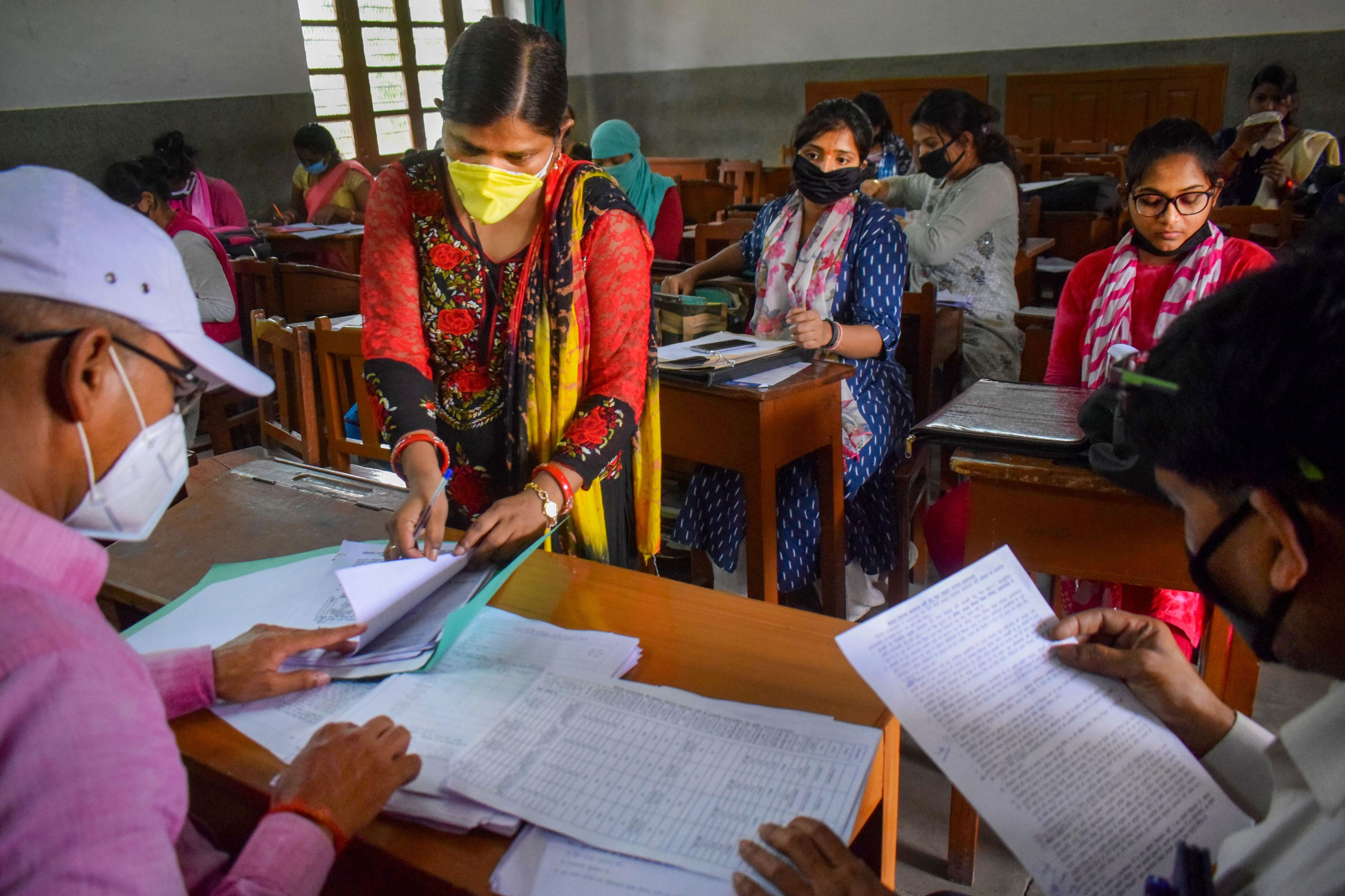Sir — As the Centre is preparing guidelines for reopening schools in India, a survey by LocalCircles found that only 11 per cent parents are in favour of it. Their anxieties are not without cause. France recorded 70 new Covid-19 cases a week after one million children were allowed to attend school and over 200 schools shut down in South Korea just days after reopening owing to a spike in cases. The scenario cannot be much different in India. Although Unlock 1.0 has begun, the number of positive cases is increasing. Sending children back to school in the midst of a pandemic will only contribute towards spreading the disease further.
Ananya Chakraborty,
New Delhi
Music unites
Sir — Just like secular and rational individuals like Rabindranath Tagore and Kota Shivarama Karanth, the saffron brigade is well aware of the plurality and cultural heterogeneity of India (“Melody within”, June 6). The difference lies in the fact that while the former tried to accept and nurture plurality, the latter aims to crush linguistic, religious and cultural differences under the Hindutva banner. This is precisely why a well-known shrine of a minority community could be demolished without consequences and history books rewritten.
Until such time that historical truth is completely erased, myth cannot fully take its place. Regardless of its erasure, it will remain a fact that Akbar’s army defeated Rana Pratap at Haldighati. Even the fanatic must know that India has always been multicultural in its very essence. And yet, Akbar in spite of his secular mindset — he had four Hindus among his navaratnas, abolished the jizya tax and participated in Hindu festivals, among other such inclusive acts — continues to be one of the main targets of the Hindu Right. Thus, it seems highly improbable that the saffron brigade will acknowledge the multicultural ethos of the works of luminaries like Bade Ghulam Ali Khan. Ramachandra Guha, in his article, is perhaps being far more optimistic than reality suggests.
On the other end of the spectrum was Mohammed Ali Jinnah who, in spite of his own secular practices, called for the Partition of India on the basis of religion. When faced with political gains, most fall prey to ambition, sacrificing religio-cultural plurality on the way.
Kajal Chatterjee,
Calcutta
Sir — The article by Ramachandra Guha on listening to Raga Hamsadhvani performed by the renowned classical music exponent, Bade Ghulam Ali Khan, not only portrayed Indian classical music in a unique manner, but also wonderfully blended in the spirit of Rabindranath Tagore’s thoughts on socio-cultural heterogeneity. Along with this, Guha’s suggestion that people listen to Indian classical music for a little while everyday to understand the plurality of our country is also praiseworthy.
K. Bhattacharya,
Siliguri
Sir — It was enlightening to read Ramachandra Guha’s article on Bade Ghulam Ali Khan; it provided a much-needed insight into his contributions to Indian classical music that bridges the gaps among language, religion and musical traditions. It must serve as a reminder to all of us that plurality of culture must be preserved for the well-being of the nation and its people.
The fact that the melodious Raga Hamsadhvani can break the barriers of region, religion and political separation speaks volumes about the cultural milieu of the past that must be nurtured once again.
Ronodeep Das,
Calcutta
Great loss
Sir — Age and illness had taken Basu Chatterjee away from film-making for a while, but his admirers had hoped that he would recover and enthral the audience with his cinematic creations once again. Their prayers, however, came to an end with his demise last Thursday (“Chronicler of aam aadmi no more”, June 5).
As one looks back at Chatterjee’s films, fascinating scenes from Rajnigandha, Khatta Meetha, Chitchor and Baton Baton Mein rekindle the memory of a genre of wholesome entertainment on celluloid. It was no small feat to tread a different path of film-making when his contemporaries were directing larger-than-life stories. Chatterjee’s cinema banked on characters that resonated with the common people and their daily struggles. His directorial venture on television, Byomkesh Bakshi, that saw Rajit Kapur as the bhadrolok sleuth, is still immensely popular. With his demise, we have suffered a truly irreparable loss.
Subhayu Saha,
Murshidabad
Sir — The news of the legendary director and screenwriter, Basu Chatterjee, passing away was incredibly sad. We have lost several renowned personalities of the Indian film industry like Irrfan Khan and Rishi Kapoor in a very short span of time. The famed lyricist, Yogesh Gaur, too, passed away a few days before Chatterjee did. In fact, he had worked with Chatterjee in the 1970s.
Chatterjee was among the finest film-makers of all time. He brought short stories like Rajnigandha and Swami to life, and directed TV shows like Rajani and Byomkesh Bakshi.
Chatterjee made unique films that presented light-hearted stories of middle-class families, capturing the emotions and realities of everyday life. His contributions to Indian cinema will always be remembered.
Kiran Agarwal,
Calcutta
Sir — The news of the death of Basu Chatterjee was deeply saddening. Few film-makers in the history of Indian cinema have had their finger on the pulse of ordinary people like he did. He will be truly missed.
Manisha Ganguly,
Calcutta










